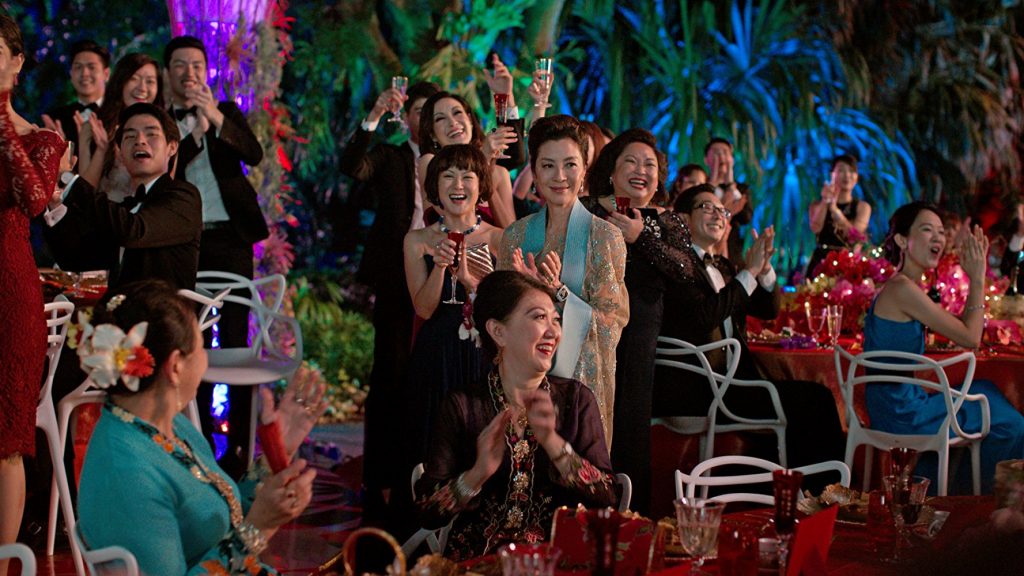A new age of co-productions and project deals between Hollywood and China.
The box office success of “Crazy Rich Asians” will have a lasting impact on Hollywood-China moviemaking deals and productions. The first studio movie to come out with an all-Westernized Asian cast since “The Joy Luck Club” 25 years ago, the “Crazy Rich Asians” movement is helping producers get financing for Asian films and leading to more joint venture co-productions.
The high-profile acquisitions of Hollywood studios by Chinese buyers that saw STX Entertainment, Legendary Pictures, and others snapped up is over. Capital has dried up over the past year, as U.S.-China trade frictions and Chinese government restrictions stopped this once vibrant channel. Hollywood-China deals came to a halt in 2017, and more recently only lower-scale projects are going through.
The drop-off of cross-border investments can be seen across industries, not just in Hollywood. China had been on a buying spree in the U.S. for a decade, topping out at $41 billion in 2016, before tighter controls and crackdowns on U.S.-China investment pruned the figure to $29 billion in 2017, according to research firm Rhodium Group.
“There is tension between the U.S. and China, and that’s really affected the size of the deals that are going on. I don’t think this is the end of the road—it’s just a chapter in a very long book,” says David Kaufman, a partner at law firm Nixon Peabody, which handles U.S.-China transactions.
Bennett Pozil, executive vice president at East West Bank, agrees that a weakening of U.S.-China relations is impacting the digital entertainment business. “We are still seeing Chinese companies investing in Hollywood/studio films but not as rampant as a few years ago,” Pozil says. He adds that current investment is coming from core Chinese companies that have an offshore capital base and from companies that are very knowledgeable about the business. Often, the investment is being structured to include Chinese distribution rights.
The draw of the Chinese box office, which is predicted to surpass North America’s by 2020, is one key reason why Hollywood still has not turned its back on China. Certainly, the recent global success of “Crazy Rich Asians” is opening new doors for cross-border productions—and not just for John Penotti, president of Ivanhoe Pictures and the film’s Hollywood co-producer. Speaking at a recent Silicon Dragon forum in Los Angeles, Penotti noted that he tried for several years to get a distributor for the Asian film, until finally Warner Brothers signed on.
This action jumpstarted the movement of Hollywood-Asian films as cinematic themes and investment focus. Jean Su, co-founder of Broadvision Pictures, says that three movies on her company’s slate have recently been financed, all with Asian lead actors. Su says the first financiers were U.S.-Caucasian investors, followed by Asian film investors, whom, she says remain averse to being in the forefront.
Joint venture productions that blend Eastern and Western cultures and investors are becoming popular. “There’s tremendous opportunity for artists like us to reach across the aisle, reach across the Pacific, and make powerful joint ventures happen that are win-win for both countries, both cultures, that can enhance our understanding of each other,” says veteran director and producer Julia Jay Pierrepont III, of Pierrepont Productions.
Indeed, the American-Chinese co-production “The Meg,” a science fiction film about a giant, prehistoric shark, topped the North American box office in mid-August, and is on its way to becoming the most successful Sino-American partnership yet. On its opening weekend, the film drew an impressive $50.3 million in China and $141.3 million globally. “‘The Meg’ was a worldwide hit and wouldn’t have been possible without the involvement of Chinese production and investment,” says Pozil.
Other recent trends point to a focus on local China projects that receive a worldwide distribution. An example that Pozil singled out was the Jackie Chan-John Cena film “Project X” that is English-language, shooting exclusively in China, but being made as a local Chinese product instead of as a co-production.
Wanda Studios’ sprawling production facilities in Qingdao, China, built for $8 billion, opened in April 2018 and has been a test of Hollywood-China co-production potential, but opened with little fanfare from Hollywood. Instead, the attraction is from international productions and cross-border collaborators, says Sarah Platt, head of international development at Wanda Studios. The China-based studios have been offering generous production incentives and cash rebates to global filmmakers to entice them to use the facilities.
Wanda’s huge movie studio was one of China’s answers to building its own Tinseltown. Just as China has copied and learned from innovations from Silicon Valley tech leaders, its film creators have looked to Hollywood for cues on making state-of-the-art movies and building production facilities. For instance, Alibaba’s Jack Ma teamed up with Steven Spielberg’s film group Amblin to produce and bring films to China, and he formed Alibaba Pictures as a Hollywood-China entertainment hub. Tencent has backed Burbank studio STX Entertainment, partnered with Dick Clark Productions to bring the Golden Globes and Billboard Music Awards to China, and invested in the Hollywood blockbuster film “Wonder Woman.”
These moves into Tinseltown culture are core to China’s bid for soft power in America’s most iconic field. It’s also a building block for China’s own Hollywood.
With China’s economic rise and greater involvement in Hollywood, there have been a number of successful co-productions and lucrative deals between businesses and studios. The two most active China corporate investors in the U.S.—Tencent and Alibaba—are active in both Silicon Valley and Hollywood. These two companies together did about two-thirds of the $44 billion in U.S.-China tech deals over a 5-year period ending in 2017, Capital IQ data shows. They invested in America’s top-tier tech brands, such as Uber, Lyft, Magic Leap and Tesla.
Whether this sort of frenzied cross-border U.S.-China deal-making will return is questionable in this new era of scrutiny of foreign investments in American companies. The regulatory crackdown is focused on critical technologies and cybersecurity. Still, Chinese investors could turn to markets where they are more welcome, points out Hans Tung, a managing partner at GGV Capital, an early Alibaba backer. Alibaba, for instance, has recently inked a few deals in Israel after a fact-finding mission to this tech stronghold in May 2018. Jack Ma’s trip came after Alibaba’s bid to buy money transfer service MoneyGram was blocked in early 2018.
The blockbuster U.S.-China deals of the past are gone. But projects that make business sense are continuing to keep China and its U.S. investors, producers, and dealmakers working together—just now on a deal-by-deal basis.
–This article first appeared on Reach Further, East West Bank’s digital news magazine covering U.S.-China Business.






